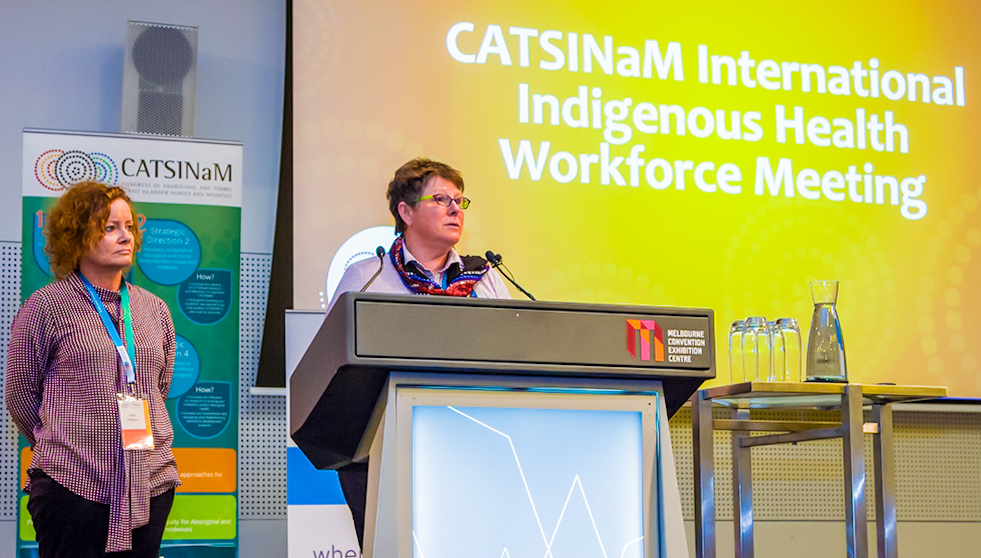A new maternity program designed to achieve better health outcomes for Aboriginal and Torres Strait Islander women and their babies has just been launched.
The culmination of a partnership between the University of Queensland, Australian College of Midwives (ACM), the Congress of Aboriginal and Torres Strait Islander Nurses and Midwives (CATSINaM), and the University of Sydney, 'Birthing on Country' was announced on Monday at the CATSINaM International Indigenous Health Workforce Meeting.
The ground breaking new maternity services program has received a total of $900,000 funding, including a grant from pharmaceutical company Merck Sharp and Dohme (MSD) to be distributed over the next three years for the Mothers' initiative. Most vitally, the program will value Aboriginal and Torres Strait Islander ways of knowing, traditional practices, connection with country, and the voices of Indigenous women throughout the development and delivery of the service.
CEO of the Australian College of Midwives, Ann Kinnear, speaking at press conference on Monday stated the importance of such an initiative. "We have the opportunity through the Birthing on Country program to profoundly and positively affect health outcomes for our Australian Indigenous communities,” Ms Kinnear said.
We have the opportunity through the Birthing on Country program to profoundly and positively affect health outcomes for our Australian Indigenous communities

Karel Williams and Ann Kinnear launching the ‘Birthing on Country’ program at the CATSINaM International Indigenous Health Workforce Source: Wirram Media
Speaking to Koori Radio yesterday, Professor Sue Kildea from the University of Queensland spoke of the disadvantages in Indigenous maternity outcomes. "We know that if we look at our first Australians that the outcomes for Mums and bubs are not as good as other Australians. There is more chance they will go in to early labour and have a premature baby, there is double the rate of prematurity, and also more chance that the baby won’t survive the first year of life."
Whilst there is still a long way to go in terms of closing the gap in the areas of health, the new initiative has been welcomed by those in the Indigenous maternity community. The CEO of CATSINaM, Janine Mohamed, also speaking at the conference said, "Birthing on Country is not something new, it is a continuation of thousands of years of knowledge and practice – what this project is doing differently is making sure that health services have in place the knowledge and skills they need to make their practice culturally safe and accessible for Aboriginal and Torres Strait Islander women and their children” Ms Mohamed said.
Birthing on Country is not something new, it is a continuation of thousands of years of knowledge and practice – what this project is doing differently is making sure that health services have in place the knowledge and skills they need to make their practice culturally safe and accessible
The initiative will also create more employment opportunities for Indigenous health workers. Professor Kildea stated that the program may vary depending on where it is, though will work towards the same outcomes. "We think (the program) will be slightly different depending on where it’s set up, we have a program in Brisbane where the institute for Indigenous health and Aboriginal and Torres Strait Island Community Health Centre and the Mater Hospital have been working together to develop a new model of care. We’ve got one to one midwives and cadetships for women who are studying to be Aboriginal midwives. It’s community based. We don’t have a birth centre yet though we’d love to have one."
Looking overseas at successful models is also a part of the plan. "In Canada there are several First Nations Birth centres, some in the very remote areas, but also in the cities, places like downtown Toronto, so we want to learn from what they have done over there and try and develop some of those services here in Australia and see if they can do what we think they can do - which is really make a difference to outcomes."

